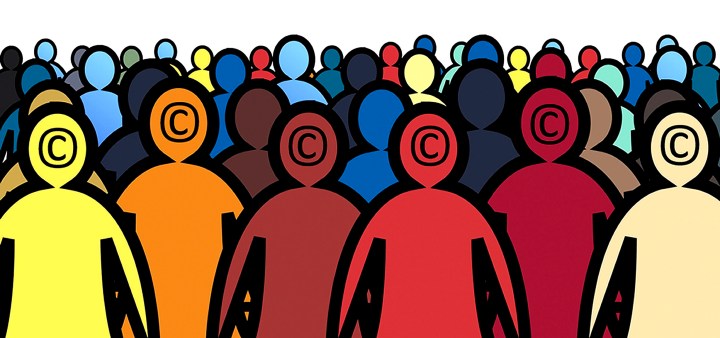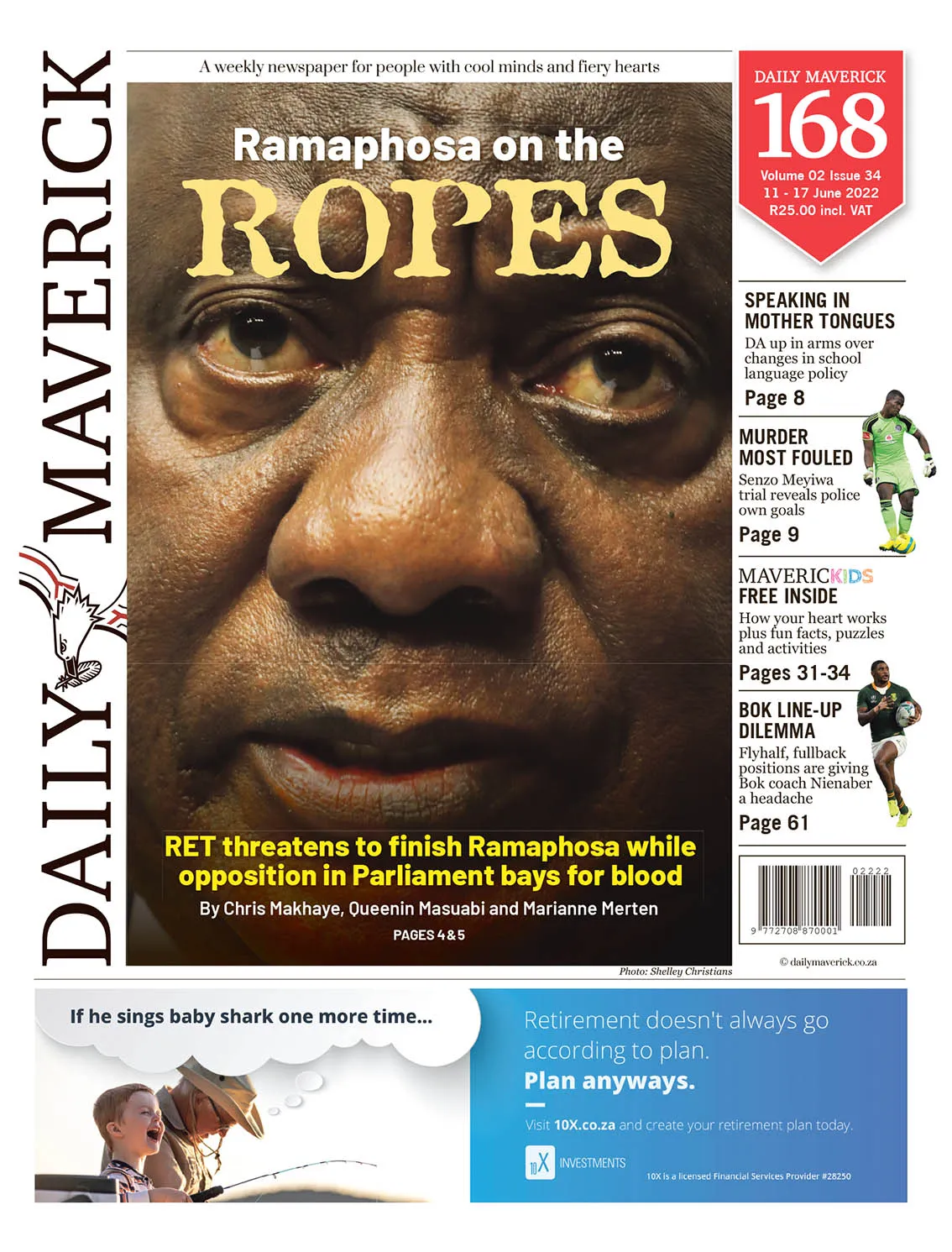INTELLECTUAL PROPERTY
SA’s new copyright law, backed by Google, is slated by the creative industry

Although the latest amendments to South Africa’s copyright legislation are intended to ‘remedy all the problems of the past’ and to protect artists, they could do more harm than good.
The strangest alliance has been formed between copyright and intellectual property (IP) academics, US tech giant Google and the Department of Trade, Industry and Competition, which have collaborated to make South Africa’s copyright law weaker.
Opposing this are South Africa’s artists, musicians, authors, filmmakers and others within the creative industry who believe this week’s adoption of the Copyright Amendment Bill and the Performers’ Protection Amendment Bill by the Parliament’s Portfolio Committee on Trade, Industry and Competition has, in effect, thrown them to the wolves.
“The tragedy is that this bill has been sold as something that will remedy all the problems of the past, and is a solution to all artists’ future problems. In reality, it will harm the ability of individuals as well as small, medium and large enterprises in the creative industry to earn a living,” says Chola Makgamathe, spokesperson for the Copyright Coalition of South Africa, an alliance of at least 17 industry organisations and trade unions.
“The cards were stacked and this bill was railroaded through,” she says. “Our association and its members are … concerned about the apparent pervasive influence of big technology companies, specifically Google, throughout this process. Certain amendments to the Copyright Act will only benefit big technology companies at the expense of [South African] creators of copyright works.”
It was not anyone’s intention to harm artists. It was commonly accepted that the Copyright Act, last amended in 2002, needed to be revamped to bring it into line with the needs of the digital environment and to improve the position of creators and performers, following recommendations of the Copyright Review Commission in 2012.
“When the legislative process is completed, the creative industries, in particular the music sector, will greatly benefit,” said Rob Davies, then minister of trade and industry, in his department’s budget speech in 2016.
But whether this will be achieved is debatable. And the bill’s tortuous route through Parliament does not help. In 2020, President Cyril Ramaphosa referred it back to the Portfolio Committee over concerns that a number of its provisions were unconstitutional. Instead of rejecting the bill outright and starting over, the Portfolio Committee patched over the issues and pushed it back.
The result is that, rather than closing the door on copyright infringement, it appears to have opened it further. As Daily Maverick’s Tim Cohen explained this week, a natural tension exists between users who want free access to creative work, and producers who want to be paid. The way the balance between the needs of producers and users is maintained internationally is by protecting the IP generally, and providing for limited and specified exceptions to this under a legal principle called “fair dealing”. The new legislation includes huge new exceptions to the protection of producers, and changes the legal principle from “fair dealing” to “fair use”.
Fair use is used in the US and allows for the unlicensed use of copyrighted works in certain circumstances, such as education, parody, news reporting and, it seems, software development. Most famously, the fair use principle was at the centre of the Google vs Oracle case, in which the court held that Google’s copying of code from the application program interface of Oracle’s Java platform for the creation of Google’s Android operating system constituted fair use under copyright law. The South African bill extends the fair use right even further, allowing fair use for the government, a clause which doesn’t exist in the US.
Until now, South Africa – like the UK, Canada, Australia, New Zealand, Singapore, India and others – has had laws based on the concept of fair dealing.
The intricacies of the law get technical but, simply put, fair use is far broader than fair dealing and this is an issue over which the two sides cannot agree.
“The bill will introduce so many more instances of where people (including the government) can use creative materials without paying royalties,” says Stephen Hollis, an IP lawyer at Adams & Adams.
However, Dr Andrew Rens, attorney, academic and policy advocate at Research ICT Africa, believes fair use is appropriate and makes more sense, particularly in the world of software development.
“No one is talking about software copyright. Fair use is much more flexible in a fast-paced world where you cannot always wait for the law to keep up.”
He adds that the new amendment bill includes provision for a tribunal that would protect creative producers from the excesses of fair use.
The one exception that the bill introduces, which is without contention, is one that will allow publishers to access published works to convert into Braille, thus extending the range of printed materials available to the blind.
The imposition of “statutory royalties” is another source of controversy. This is to ensure that, when a piece of work such as a book, song, play or movie, is an unexpected hit, the creatives involved also receive their slice of the rewards. It sounds reasonable on paper, but Trish Downing, executive director of the Independent Producers Organisation, says that, although this is a laudable intention, this is a blunt instrument that could have the opposite effect.
“Since the 1980s, when actors’ unhappiness about their remuneration reached its height in the US, the actors’ lot and contract terms have improved significantly,” she says. These rights are enshrined in the Beijing Treaty on Audiovisual Performances, which calls for “royalties or equitable remuneration”, whereas the draft SA bills call only for unwaivable statutory royalties. They do not allow for contractual flexibility to negotiate terms, even if the actors wish it.
“The bills are at odds with the legal and economic practicalities of the audiovisual sector in that they eviscerate contractual certainty, restrict the necessary consolidation of rights in producers, and impose remuneration models which are not compatible with sustainable investment in film and TV production,” says Bradley Silver, director of IP Policy at Netflix, which recently pledged to invest roughly R900-million by 2023.
Possibly the greatest concern about the bills is that they have been pushed through without the benefit of a proper socioeconomic impact assessment, as required by Parliament itself. This ensures that the drafters can identify which sectors are affected, how they will be affected, and possible unintended consequences.
“While it is true that some artists may have ‘died as paupers’, there is also demonstrable evidence of a much higher number of artists who have made a commercial success of their endeavours in the same markets,” says Hollis. “But without a proper impact assessment that supports the bill, MPs really have no idea what the current state or commercial reality of each affected industry is.”
The other potential pitfall is that there has been no legal analysis of the bill’s provisions when measured against treaties to which South Africa is a signatory, including the Berne Convention (the main international treaty on copyright) and the Agreement on Trade-Related Aspects of Intellectual Property Rights.
Though Parliament’s intentions were noble, ignoring the concerns of vast swaths of South Africa’s creative industry virtually guarantees that this much-needed, and long-delayed, amendment bill will not see the light of day for years. DM168
This story first appeared in our weekly Daily Maverick 168 newspaper, which is available countrywide for R25.





















 Become an Insider
Become an Insider
The author of this article is surprisingly biased against the bill. A few problems with this article are:
* The article extensively quotes critics of the bill (4 in total; Trish Downing, Bradley Silver, Chola Makgamathe, Stephen Hollis) but only talks to one person (Dr Andrew Rens) -and quotes a second in government- who support the bill. This manufactures a false perception that the bill is a net negative and widely disliked.
* Overwhelmingly lists reasons why the critics of Fair Use think it is bad, provides very few words for why people support Fair Use and believe it is good.
* Mentions countries that use Fair Dealing but does not mention the countries (such as Singapore or Israel) that have switched from Fair Dealing to Fair Use and why they have made the switch.
* Author seems to suggest that international law uses Fair Dealing, this is not true. Indeed increasingly more countries are adopting Fair Use.
* Does not explain how or why copyright exceptions for public benefit might be a good thing for society, simply presents the assumption that it is bad.
* Unquestioningly quotes the accusation that the “bill was railroaded” through parliament without proving evidence of this. Ignores the many rounds of consultation with the public over many years.
* The article alleges that Google backs the bill but provides no evidence of this.
On a side note: it is a false belief that Fair Use will enable piracy, this is patently false as has been shown in countries that use it.
It is also worth noting that the Copyright Bill is not slated by the creative community but only one part of the community. The title is misleading in stating that. For example the bill is supported by the South African Guild of Actors as well as many musicians.